Decades of advocacy open the door for implementation and recognition of Indonesia's Indigenous Peoples
Since the fall of Suharto’s regime in 1998, the Indigenous Peoples of Indonesia have achieved significant policy and legal breakthroughs in the struggle for the recognition of their collective land rights. This struggle culminated in a May 2013 Constitutional Court Ruling, which declared that the state had wrongly appropriated customary forests and should return them to indigenous communities. Yet after 15 years of high-minded reforms at the constitutional and legislative levels, Indonesia’s Indigenous Peoples remain without legal recognition, and there has been little progress on the ground in recognising indigenous lands.
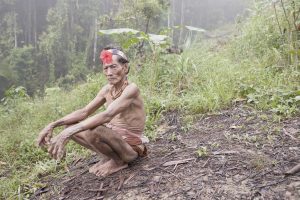
1980s
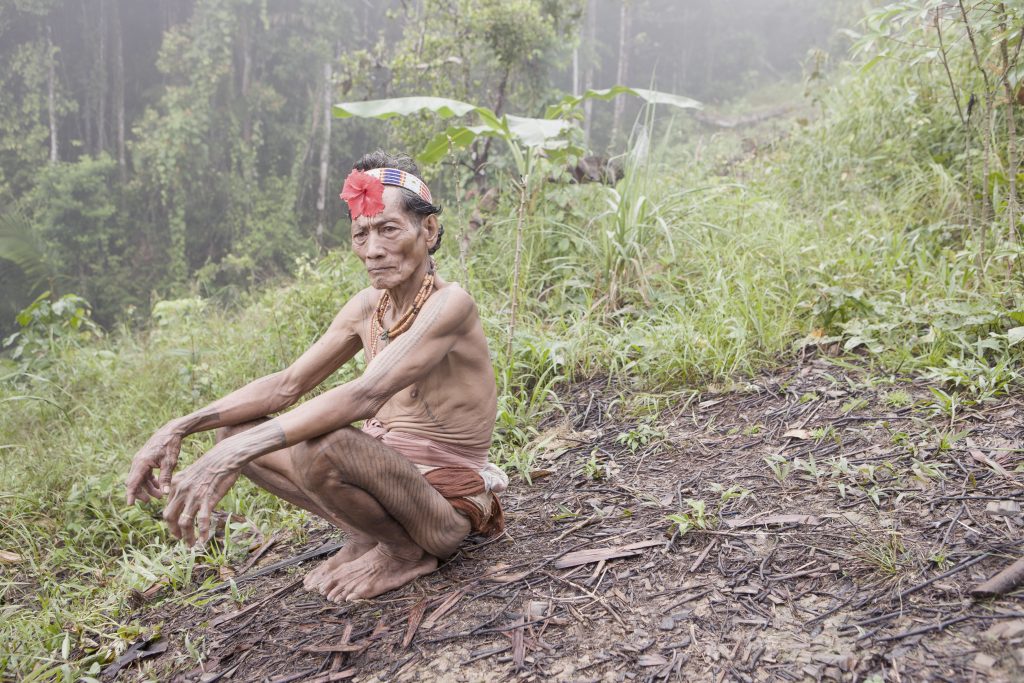
1980s
Resistance to President Suharto’s forest policies begins.
Indonesian NGOs campaign against state forest policies and logging companies’ destructive practices, while the environmental movement in Indonesia starts to coordinate with Indigenous Peoples.
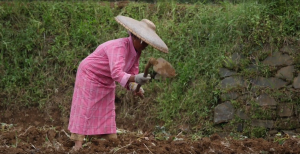
1999
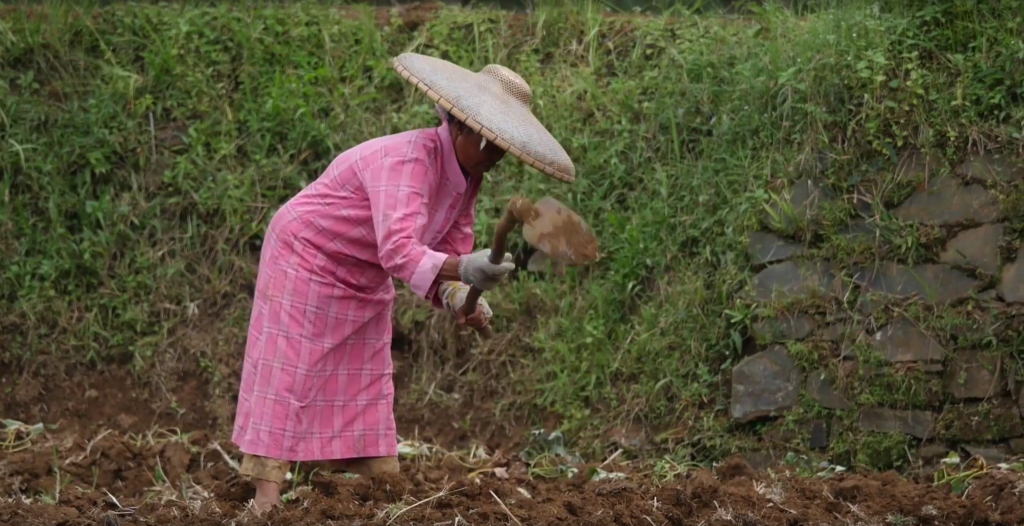
1999
The Indigenous Peoples’ Alliance of the Archipelago (AMAN) is established.
After the fall of President Suharto, the first congress of Indigenous Peoples establishes AMAN, which advocates for human rights and citizenship rights for Indigenous Peoples in the Republic of Indonesia.
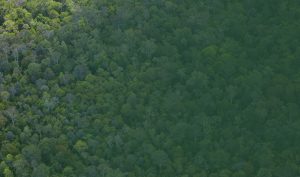
1999
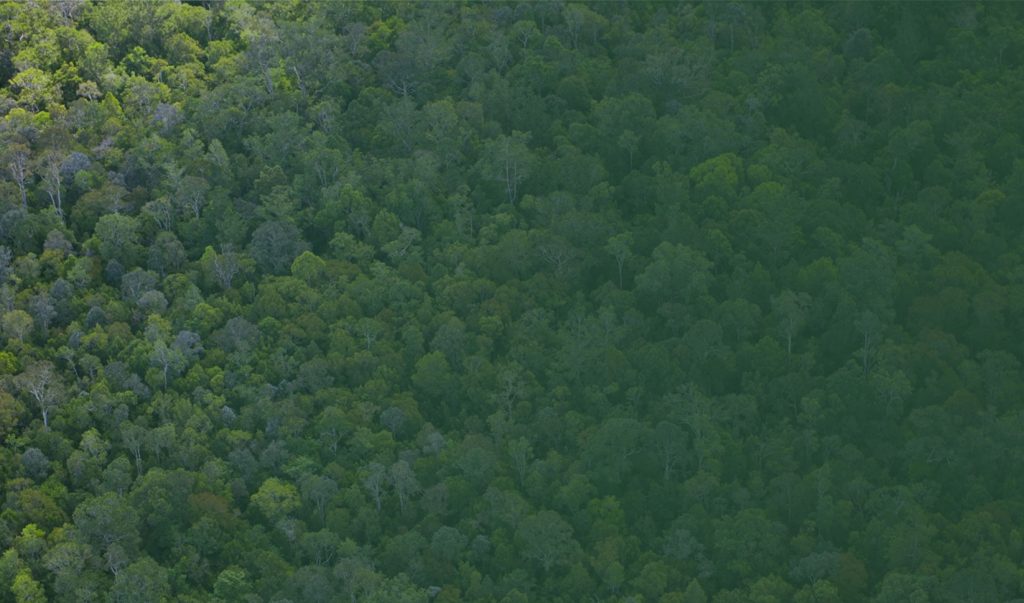
1999
In February, the Indonesian government makes a commitment to resolve forest land tenure issues to the Consultative Group of Indonesia, a consortium of countries and institutions providing funding to the country, set up by the Indonesian government and the World Bank.
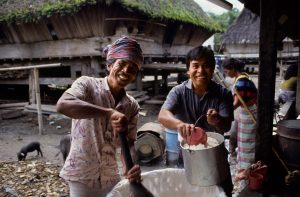
2002
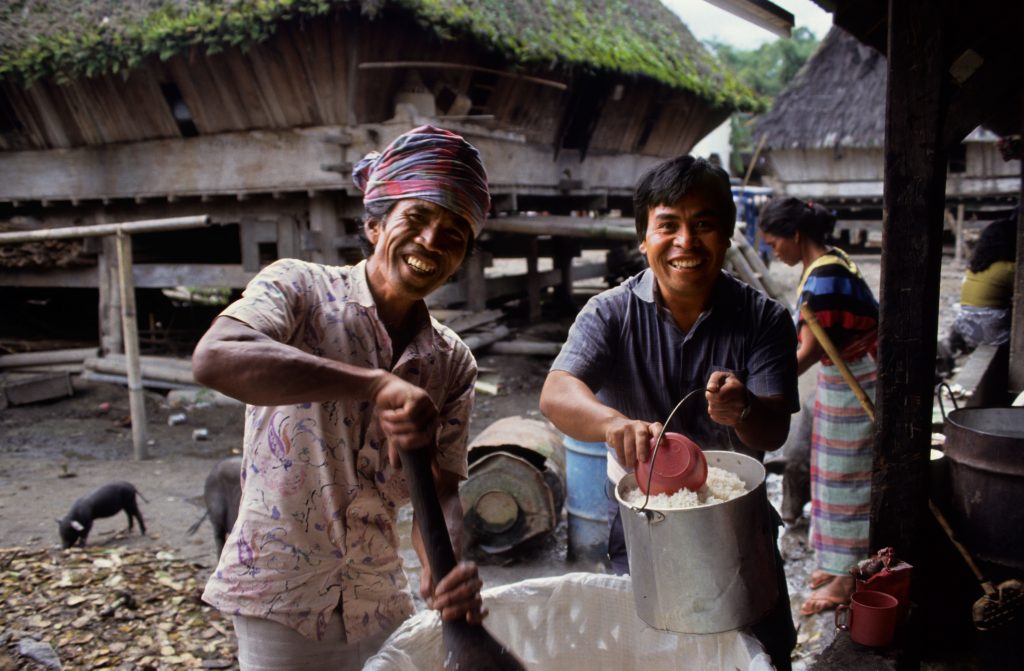
2002
Constitutional amendment recognises the rights of Indigenous Peoples.
After failing to recognise Indigenous Peoples’ rights for centuries, an amendment to the Indonesian Constitution recognises the cultural identity and traditional rights of Indigenous Peoples.
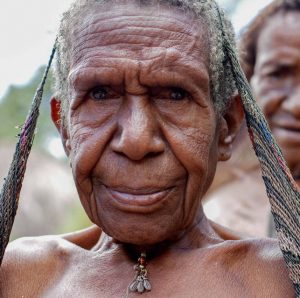
2007
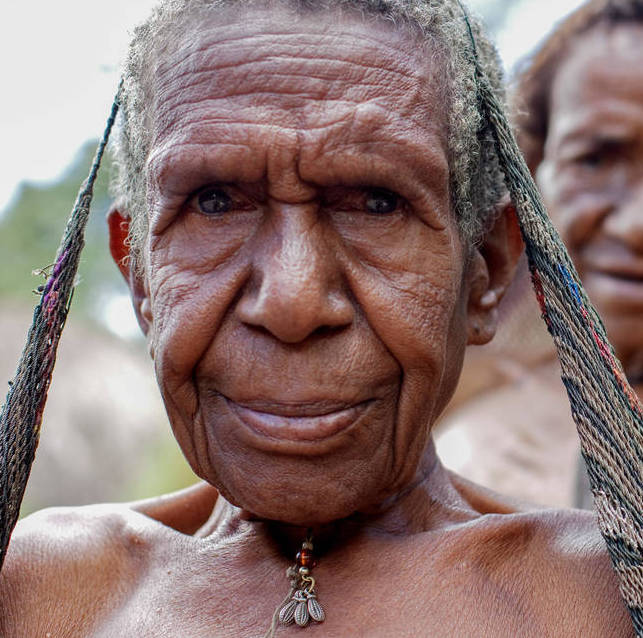
2007
New laws confer limited rights to communities.
The government enacts two new laws conferring limited rights to communities (kemitraan) and to individuals, households, and village cooperatives (hutan tanaman rakyat).
2011
2011
“70% of forest areas with indigenous land claims are subject to conflicting claims by communities and concessions.”
– Abdon Nababan, former Secretary General of AMAN
2012
2012
AMAN challenges Forestry Law No. 41 in Constitutional Court
AMAN files an objection to Forestry Law no. 41, which fails to recognize Indigenous Peoples’ rights and has been used to legalize the claim that customary lands belong to the state. AMAN argues that the law allows the Indonesian government to sell concessions to private companies on Indigenous Peoples’ land.
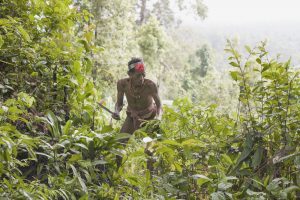
2012
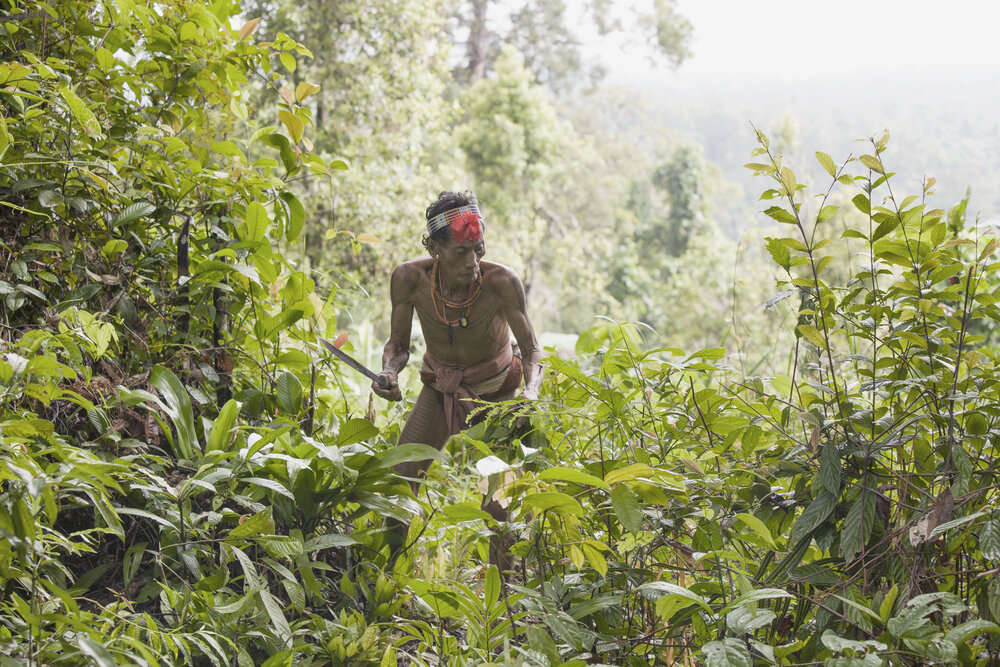
2012
“About 40 million Indigenous Peoples are now the rightful owners of our customary forests.”
– Abdon Nababan, former Secretary General of AMAN
2013
2013
The Constitutional Court approved the judicial review against the 1999 Forestry Law no 41 and ruled that customary forests are not part of State forest but belong to Indigenous territory (“MK 35 Constitutional ruling”). This became the legal basis for Indigenous Peoples throughout Indonesia to reclaim their territory.
2014
2014
“Nearly 96% of Indonesia’s forests remain under government control.”
– What Future for Reform? Rights and Resources Initiative, 2014
2015
2015
APP pledges assistance to the investigation. The murder comes on the heels of APP’s recent efforts to reverse its reputation as one of the world’s most notorious tropical deforesters. A recent evaluation of APP’s social responsibility performance in Indonesia reveals a troubling lack of progress, particularly in regards to resolving community conflicts with the company’s suppliers.
2016
2016
Government releases report on human rights of Indigenous Peoples living in forests.
The report finds that while in some cases respect for the rights of Indigenous Peoples has improved, in other areas indigenous communities continue to face violence and other human rights violations. Read more about this report here.
2017
2017
National Tenure Conference, 25-27 October 2017, Jakarta: This event was co-organized by the Ministry of Environment & Forestry (KLHK), the Executive Office of the President (KSP) and the Civil Society Coalition for Tenure Justice (initiator) to Realize People’s Rights Through Land Tenure Reform & Forest Management in Indonesia. This was the second Tenure Conference after the 1st Tenure Conference held in Lombok in 2011.
Nine Customary forests returned to Indigenous communities: At the opening ceremony of the Tenure Conference, President Jokowi hands over nine indigenous forests recognition decrees to nine communities, covering 3,341 hectares for the benefit of 3,111 families in West and East Kalimantan, Central Sulawesi and Jambi provinces.
Traditional forest festival, 6-17 December 2017, Maranti forest, Jagakarsa village, Banten province: organized to celebrate the victory of the Kasepuhan Karang indigenous community to get rights recognition over a 486-hectare of customary territory in Banten, West Java. This festival is the first customary forest festival organized in an ecotourism area.
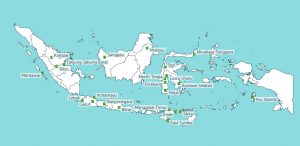
2018
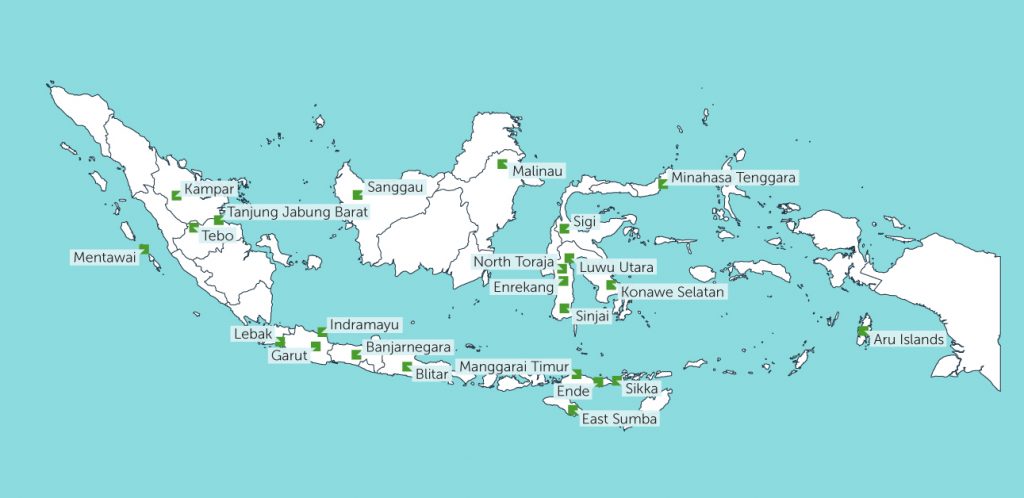
2018
Indonesian indigenous and farmers’ organisations join forces to secure more than 2 million hectares of land and forest: Building on the successful Tenure Facility pilot initiative, three organisations have joined forces to upscale the implementation of tenure rights and agrarian reform throughout Indonesia. Launched in November 2019, the initiative is called ‘Accelerating agrarian reform and recognition of indigenous territory in Indonesia.’ It twins the strengths of AMAN with those of the largest farmers’ organisation in the country, the Agrarian Renewal Consortium (KPA), and the Indigenous Territory Registration Body (BRWA).
MoEF National Coordination Meeting on Indigenous Forests, 23-24 January 2018: as a direct follow-up of the Tenure Conference, the MoEF held a National Coordination meeting to discuss recognition of Indigenous Forests. An important measure proposed is the reservation of areas qualifying as Indigenous Forests, even if legal conditions are not yet fulfilled (in particular as to the legal status of the customary communities or the drafting of a detailed map). Such conservative measures should prevent further encroachment on indigenous lands by economic and ecosystem restoration concessions.
Sixteen Indigenous communities are granted rights over their forests: President Jokowi hands over MoEF recognition decrees to 16 Adat Communities: 10 in Jambi province, 3 in West Kalimantan, 2 in South Sulawesi, 1 in West Jawa for a total area of 6,023 hectares.
Monokwari Declaration to conserve 70% of Tanah Papua’s forests, October 2018: the Manokwari Declaration is an unprecedented pledge by the governors of Indonesia’s two New Guinea provinces to promote conservation. Because Tanah Papua has the largest expanse of intact forests in SE Asia, large-scale conservation pledges like the Manokwari Declaration will have a global impact on biodiversity conservation and climate change mitigation.
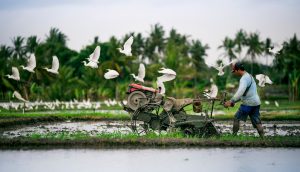
2020
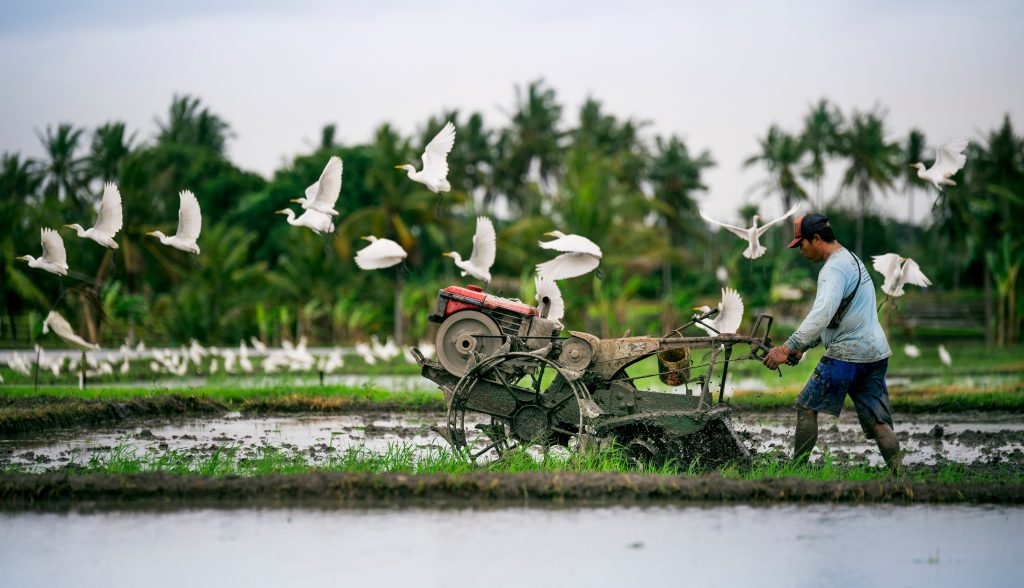
2020
Over 10 mio hectares of Indigenous territories mapped: in January 2020, the Ancestral Domain Registration Agency, BRWA, reports over 10 mio hectares of Indigenous territories mapped, with a potential of over 7.8 mio hectares of Indigenous forests to be recognized by the MoEF.
Two farmers killed in a Conflict with Oil Palm company in March: the oil palm company PT Artha Prigel, member of Sawit Mas Group, forcibly evicted farmers in Pagar Batu Village, in South Sumatra. The eviction was jointly conducted by company security personnel, hired thugs and police officers. Two farmers who resisted the eviction were killed. Through the Emergency Fund for victims of criminalization and violence, coordinated by KPA, medical assistance was given to those injured, support provided to the families of those who were killed, a legal team was formed and an investigation team sent to the area. This independent investigation established that those killed were surrounded by their aggressors and stabbed to death. In 2019, KPA recorded 258 people criminalized in agrarian conflicts, 211 people persecuted, 24 shot and 14 killed.
Passing of controversial Job Creation Act (UUCK) no. 11 of 2020 known as the Omnibus Law, October 5th : despite unprecedented opposition for environmental, peasant, labour organizations, student movement, the Omnibus Law is passed to facilitate investments by simplifying licensing steps, easing requirements to do business, and accelerate land acquisition process. This Omnibus Law rolls back already limited protections for IPs’ rights, and further privileges the interests of the business community, specifically plantation companies and extractive industries. Meanwhile the Bill on the Recognition and Protection of Indigenous Peoples Rights has lingered in the legislature for almost a decade. CSO respond by boycotting dialogue with the President and submit a report to UN CERD.
The Coalition of Constitutional Rights Defenders (Kepal) files a judicial review against the Job Creation Law at the Constitutional Court, November 10th
President Jokowi meets Agrarian Activists at the State Palace, December 3rd: President Joko Widodo together with the relevant ministers meets activists, including the Secretary General of the Agrarian Reform Consortium (KPA) Dewi Kartika, the Head of the Ancestral Domains Registration Agency (BRWA) Kasmita Widodo. This will lead to the setting-up a Team for Acceleration of Agrarian Conflict Resolution of which BRWA and KPA are members.
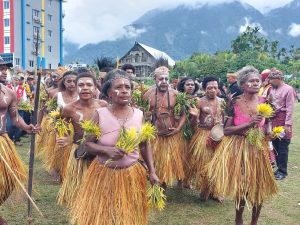
2022

2022
In January the Consortium for Agrarian Reform (KPA) reports that throughout 2021, 207 new agrarian conflicts were recorded, covering half a million hectares in 507 villages spread across 32 provinces (out of 34 provinces in Indonesia). While the number of conflicts decreased compared to 2020, number of families impacted increased, indicating that agrarian conflicts occur in densely populated zones and where communities control, cultivate, and manage the land. In 2021, there were 125 cases of criminalization against Indigenous Peoples, local communities and land rights defenders, including 25 cases against women defenders. There have been 51 cases of violence with 7 targeting women, two people were shot and three were killed.
The Ancestral Domain Registration Agency (BRWA) released its report on the “Recognition Status of Indigenous Territories in Indonesia”, March and August:
In March: over the last 6 months, Indigenous territory maps registered by BRWA increased by 5 million hectares (41%) from 12.7 million hectares to 17.6 million hectares. The increase in the coverage of indigenous territory was mostly contributed by mapping done in Papua region.
In August, at the occasion of the International Day of World Indigenous Peoples: since last March, the total customary area registered increased by 3.1 million hectares, with 2.1 million hectares from Malinau Regency in North Kalimantan and 0.9 million hectares from Jayapura Regency in Papua.
New Capital City (IKN) project launched in East Kalimantan, March: President Jokowi held a traditional ceremony at the Point Zero of future Capital of the Archipelago (IKN) in East Kalimantan. This project is generating opposition especially from indigenous peoples’ movement, as it will be built on 21 Indigenous territories accoridng to AMAN.
Recognition of Customary Villages in Papua: The Home Affairs Ministry handed over village codes establishing 14 Customary Villages in Jayapura Regency, Papua Province. It is the first time that the Home Affairs is proceeding with the recognition of customary villages. The recognition of Customary villages is based on Law No. 6 of 2014 recognizing the existence of customary law communities and their sovereignty over their customary territory, natural resources, customary norms and institutions within the area of newly established customary village.
24-30 October 2022: 6 th AMAN Congress held in Papua
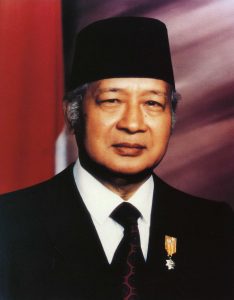
1970
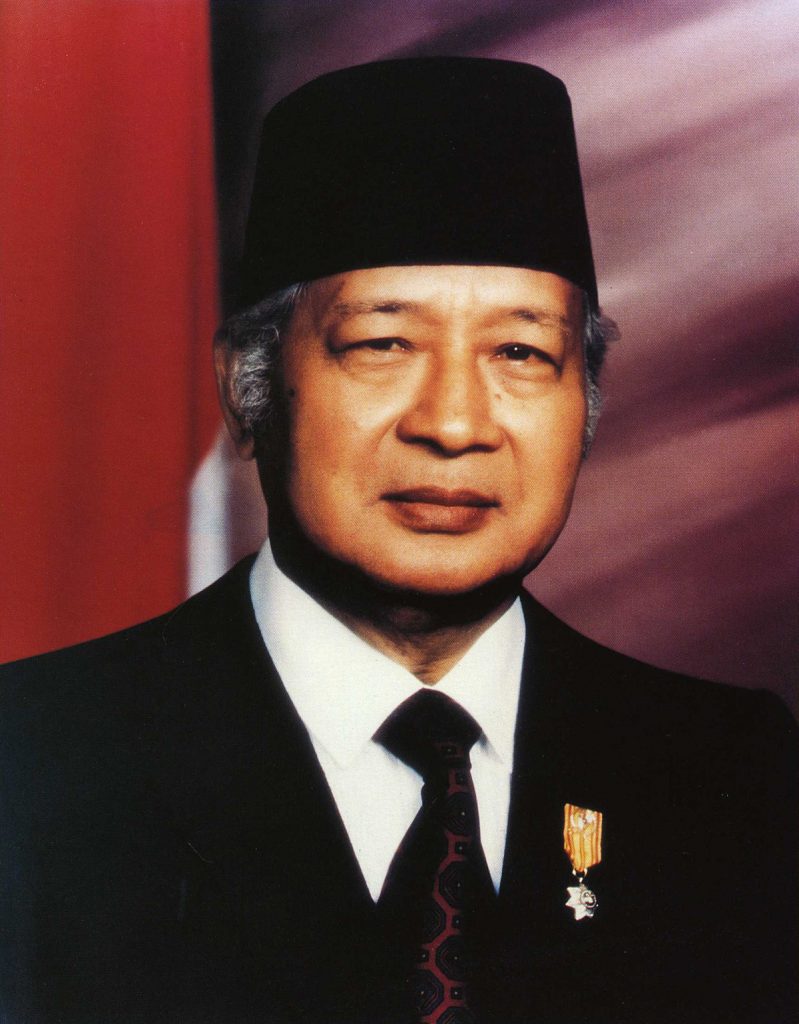
1970
President Suharto allows for forest exploitation.
From the 1970s to the late 1990s, an authoritarian regime led by President Suharto facilitates massive exploitation of Indonesia’s forests, licensing forest lands to private and state-owned logging companies and industrial plantation companies
30% of Indonesia’s land—much of it belonging to Indigenous Peoples—is handed to private companies by the government over 50 years, leading to land-grabbing, displacement, and tenure conflicts.
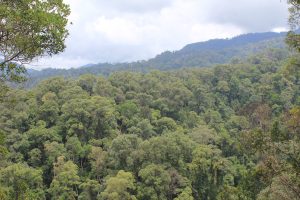
1990s
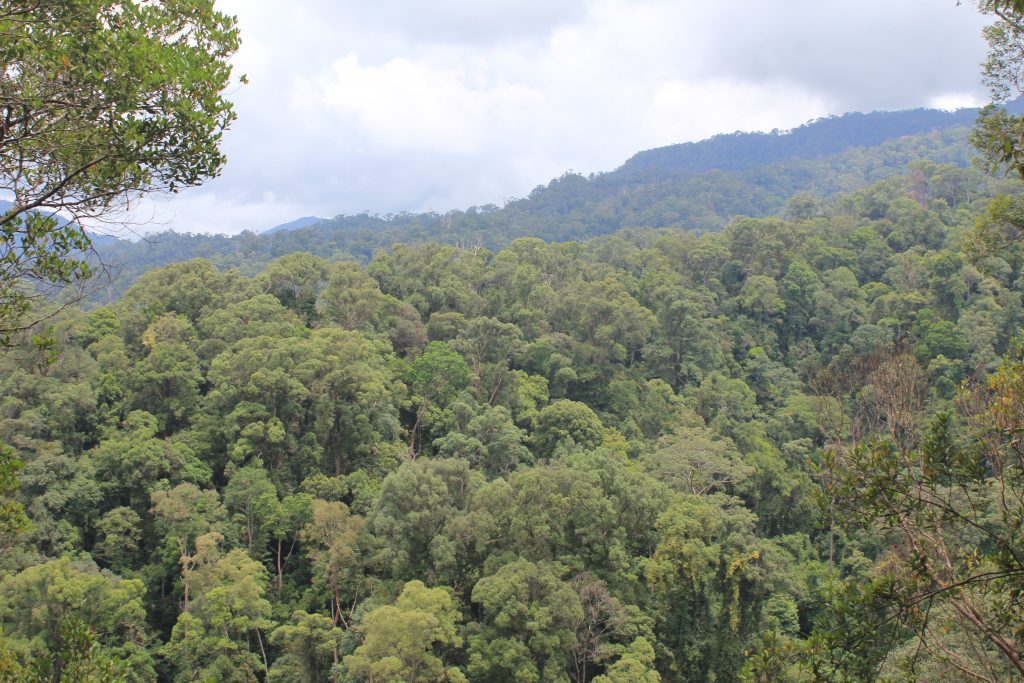
1990s
Forest bureaucracy grants timber industry concessions on Indigenous Peoples’ customary territories.
The Ministry of Forestry gives licenses to timber plantation companies with the idea that over-logged areas will be reforested. However, several companies are granted licenses to develop plantations in natural forests that are still intact. Many of the concessions are on Indigenous Peoples’ lands, leading to displacement, poverty, and other social injustices.
1999
1999
Parliament passes Forest Law No. 41, which does not recognise Indigenous Peoples’ rights and is used to legalise the claim that customary lands belong to the state.
2001
2001
Consultative Group issues a still unimplemented decree on tenure.
People’s Consultative Assembly Decree No. IX 2001 is established, mandating the president to review agrarian and natural resource regulations and address forest and land tenure issues. Implementation of the decree has not yet taken place, due at least in part to a lack of political will.

2007

2007
United Nations (UN) General Assembly adopts the UN Declaration on the Rights of Indigenous Peoples (UNDRIP).
In September, the General Assembly adopts UNDRIP with 144 countries, including Indonesia, voting in favour.
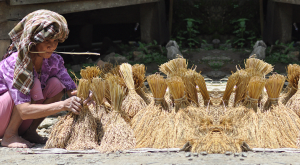
2011
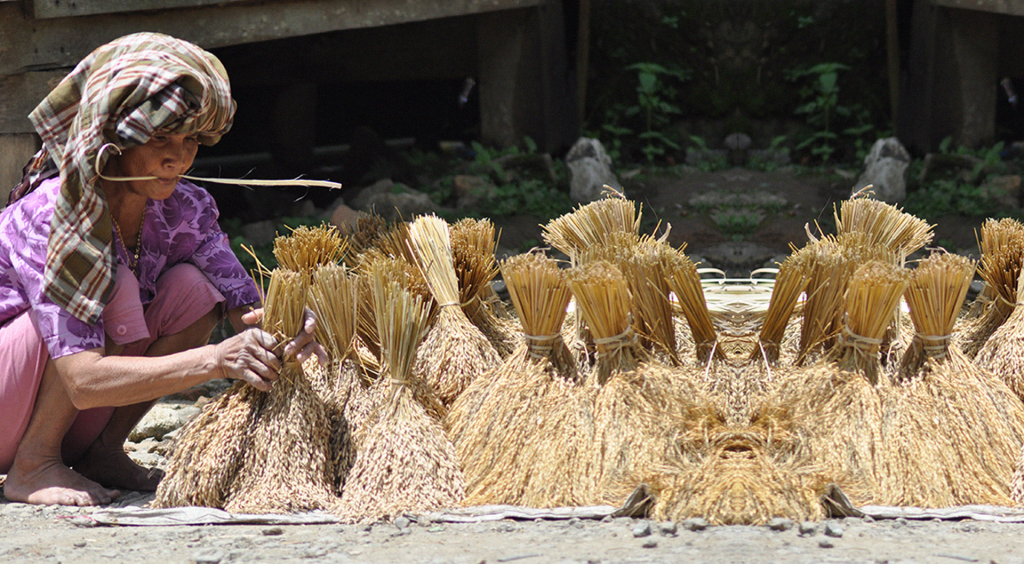
2011
Presidential Instruction No. 10/2011 places a moratorium on forest concessions.
In May, a new memo from the president postpones any new licenses for the conversion of primary natural forests and peatland for two years. Unfortunately, these moratoriums do not halt the infringement of rights on the ground.
2011
2011
Indonesian Government commits to expanding rights of Indigenous Peoples.
During a keynote speech given at a global forestry conference in July, Kuntoro Mangkusubroto, head of the Indonesian President’s Special Delivery Unit, announces the government’s intention to prioritise the needs of its forest communities.
2012
2012
Indonesian Constitutional Court sides with AMAN on Forestry Law No. 41
It declares that customary forests are no longer part of state forests by changing the law to read: “Customary forests are forests located in the territory of Indigenous Peoples.” This revision of the law lays the legal groundwork for indigenous communities to assert their legal rights, though implementation of the ruling remains minimal.”
2012
2012
AMAN progresses in mapping ancestral territories.
AMAN maps approximately 6.7 million hectares of ancestral territories with input and agreement from communities. When AMAN starts its mapping efforts in 2010, it establishes the Ancestral Domain Registration Agency to register these maps. AMAN aims to map all ancestral territories by 2020. These efforts receive significant impetus from the Indonesian Constitutional Court decision in May.
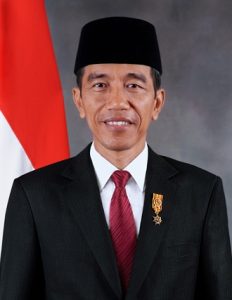
2014
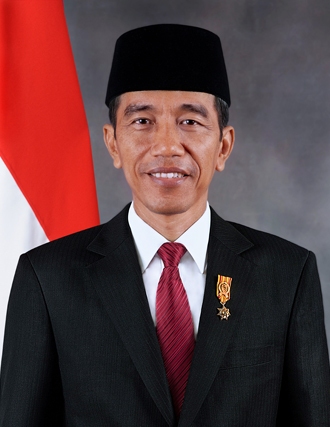
2014
‘Joko Widodo wins presidency.
Indonesians elect Joko Widodo for president. He is inaugurated October 20, and introduces several indigenous rights activists and friends of AMAN into his cabinet. In June 2015, President Widodo meets with representatives from AMAN to discuss their projects. His “Nawa Cita”, or Presidential candidate’s pledge, includes six main agenda points that pertain to the rights of Indigenous Peoples.
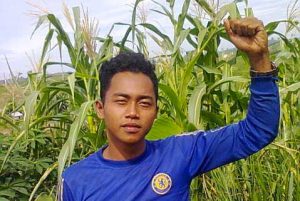
2015
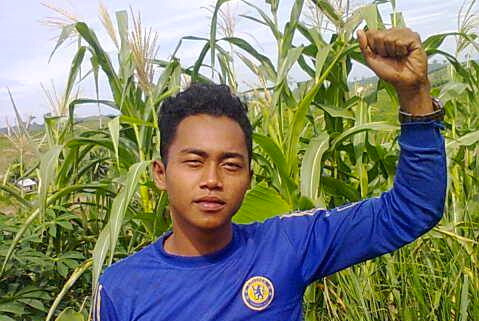
2015
Plantation guards murder local land rights activist.
While traveling to a harvest festival in Jambi, Indonesia, farmer and land rights activist Indra Pelani is allegedly murdered after an argument with guards stationed outside a pulpwood plantation owned by PT Wira Karya Sakti (WKS), a subsidiary of Asia Pulp and Paper (APP). According to reports, Pelani’s body is later found tied up several kilometres away, showing evidence of stab wounds and severe beating. The seven guards suspected in the killing later surrender to police.
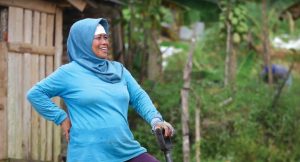
2015
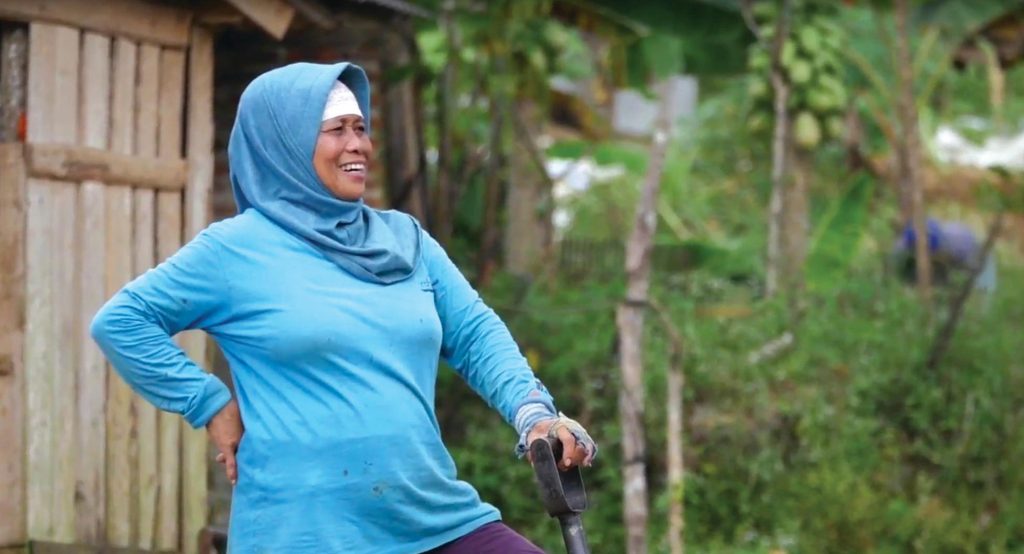
2015
AMAN begins partnership with the Tenure Facility.
With financial and technical support from the Tenure Facility, AMAN expands its participatory mapping efforts, as well as its collaboration with government agencies and civil society organisations. AMAN and the Tenure Facility recognise that Indonesia’s current political environment, after the Constitutional Court ruling on Forestry Law No. 41 and the election of President Widodo, presents an opportunity to expand recognition of land rights. The Tenure Facility project in Indonesia amplifies AMAN’s efforts to mobilise support at the national and district levels to use the current political momentum to advance the rights of Indigenous Peoples.
The partnership also supports AMAN’s community mapping project, which seeks to incorporate gender perspectives in community mapping activities, ensuring that the knowledge and management practices of women are taken into account and accurately represented.
Learn more about the initiative.
“The Tenure Facility’s main mission is to enable Indigenous Peoples to respond to legal and political opportunities.”
– Abdon Nababan, former Secretary General of AMAN
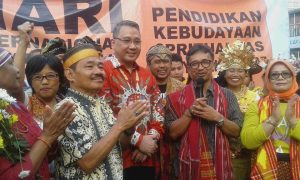
2017
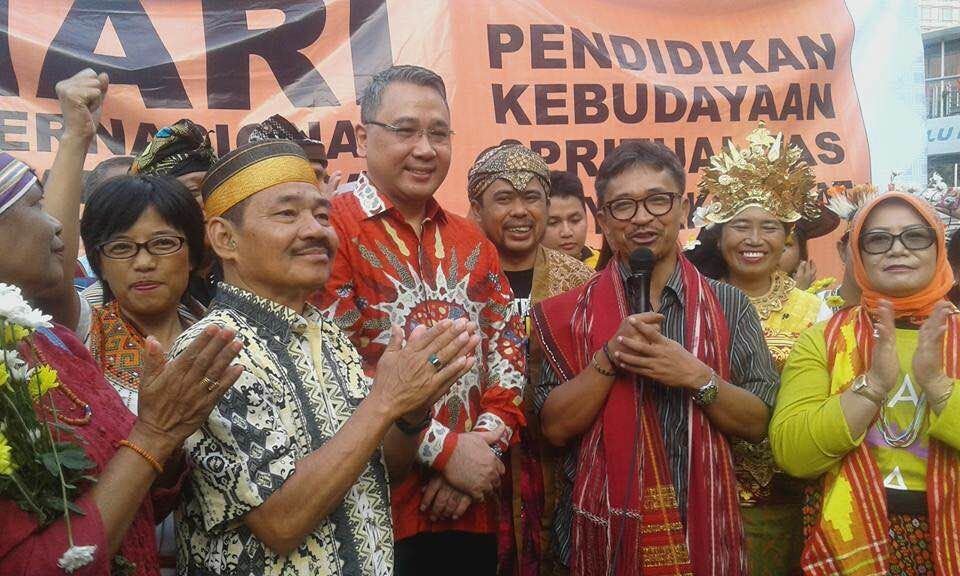
2017
AMAN ignites a movement that spreads from district to district through peer-to-peer exchanges, as local authorities adopt local legislation to secure Indigenous Peoples’ land and forest rights.
AMAN assists local governments in the drafting of 32 district-level regulations, and three provincial regulations, that respect the land and forest rights of Indigenous Peoples. Once passed, these regulations will lead to titles for more than 1.5 million hectares of land and forest belonging to 200 indigenous communities. Click on the video below to learn more.
Government recognizes indigenous communities.
With the support of the Tenure Facility, five district regulations on Indigenous Peoples are approved, involving 26 indigenous communities and leading to the recognition of 250,000 hectares in 2017.
AMAN from The Tenure Facility on Vimeo.
2018
2018
AMAN expands participatory mapping of Indigenous Peoples’ lands and introduces gender-sensitive participatory mapping in more than 38 communities. This to ensure the meaningful participation of women.
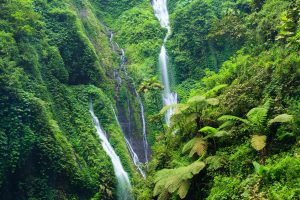
2019
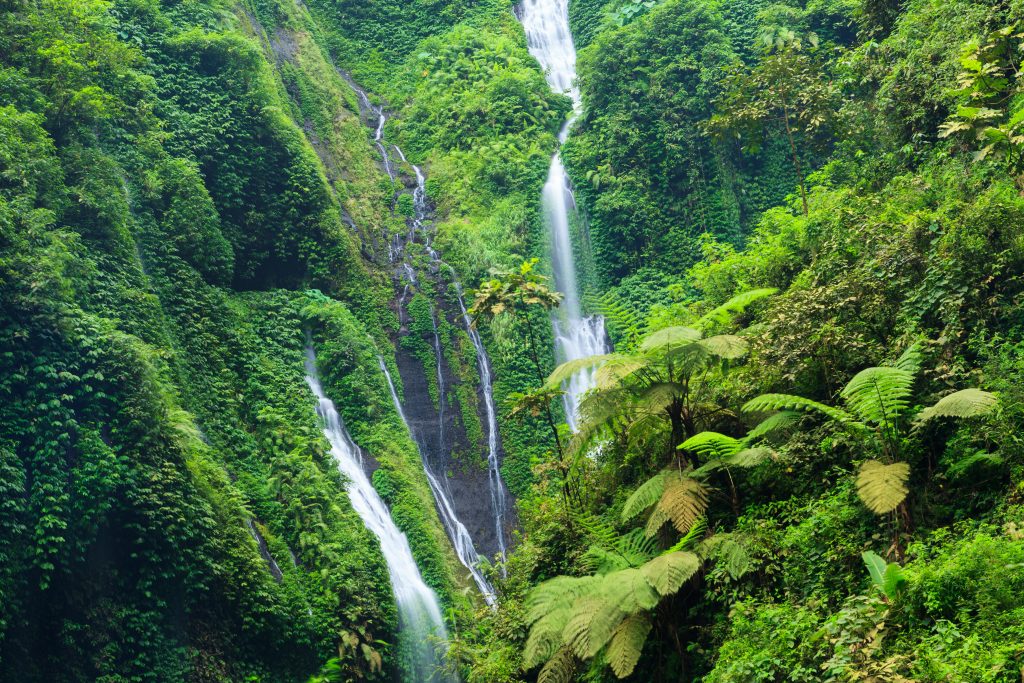
2019
Launching of Indicative Map of Indigenous Forests: On 27th May 2019, the Ministry of Environment and Forestry (KLHK) launched the Indicative Map of Indigenous Forests covering 472,981 hectares. This forms the basis for the government further formal recognition of Indigenous Communities’ tenure rights on claimed forests.
2002 Law No 30 revised to weaken the Anti-Corruption Commission (KPK) authority: On September 17, 2019 despite strong opposition by civil society movements, the parliament limits the authority of the KPK in acting against corruption, including in natural resources sector, ending KPK efforts with the National Movement to Save Natural Resources (KPK-GNPSDA) to fight land and natural resources related corruption.

2021
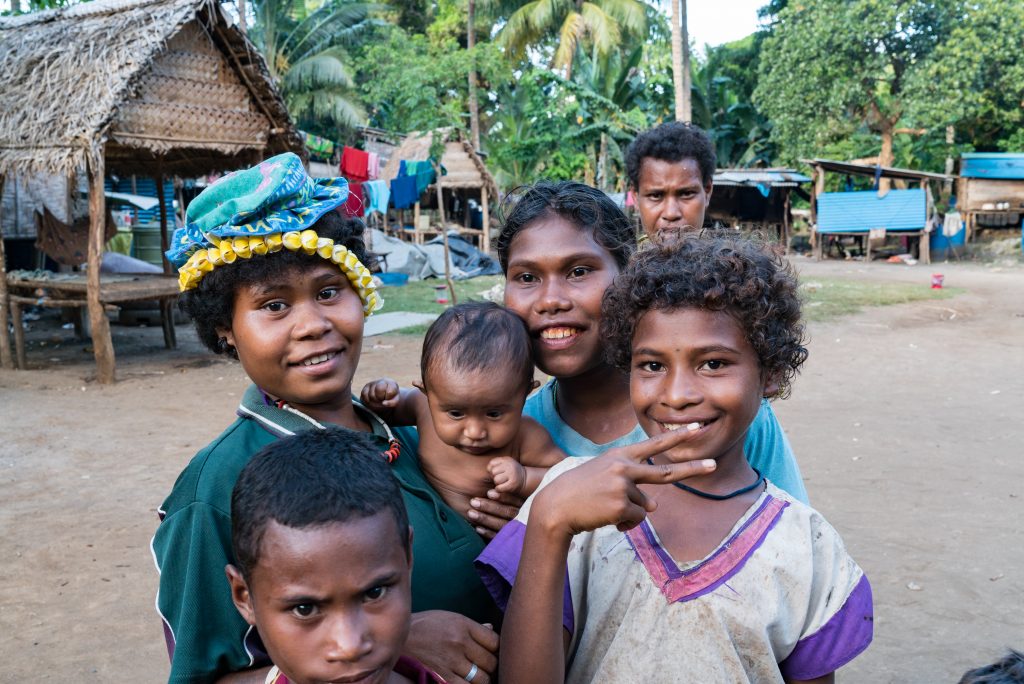
2021
In January, KPA reports that in 2020, 241 agrarian conflicts were recorded covering 625,000 ha, with half of it in the forestry sector, and impacting 135,332 households in 359 villages. 169 people were victims of violence and criminalization with 19 victims injured (4 women), 139 people criminalized (2 women), and 11 persons killed. Perpetrators of violence involve police, military, militia and security personnel from company, who most of the time are not prosecuted.
Palm Oil concessions revoked on more than quarter of a million hectares in Papua, May-June: In May, South Sorong Regent revokes four companies’ permits for operating illegally on 77,000 hectares of Indigenous territories. In June, the provincial government revokes another 8 palm oil concessions in four other districts. All together the 12 concessions span more than 260,000 mio ha and three-fifths of this area is still forested. This sets an important precedent for more comprehensive evaluation of oil palm plantation permits and concessions in Indonesia.
The Omnibus Law declared “conditionally unconstitutional, November 25th : the Job Creation Law known as the Omnibus Law has been subject to a judicial review by the Constitutional Court of the Republic of Indonesia since late 2020. Through the decision No. 91, the Court declared that the enactment of the Job Creation Law was not fully compliant with the Constitution of the Republic of Indonesia and therefore needs to be rectified within two years.